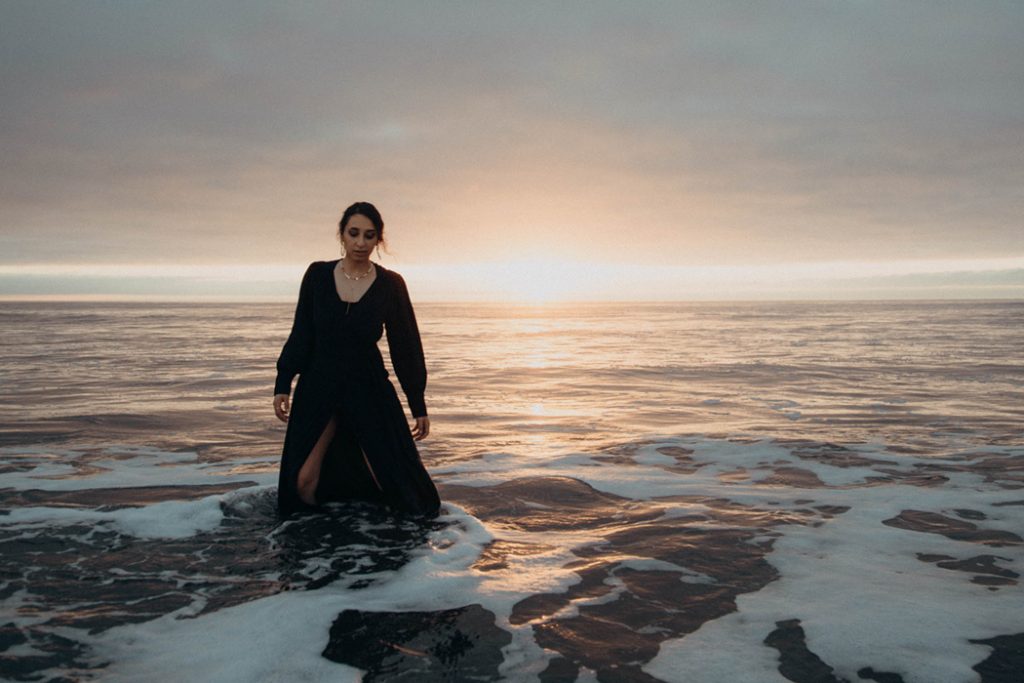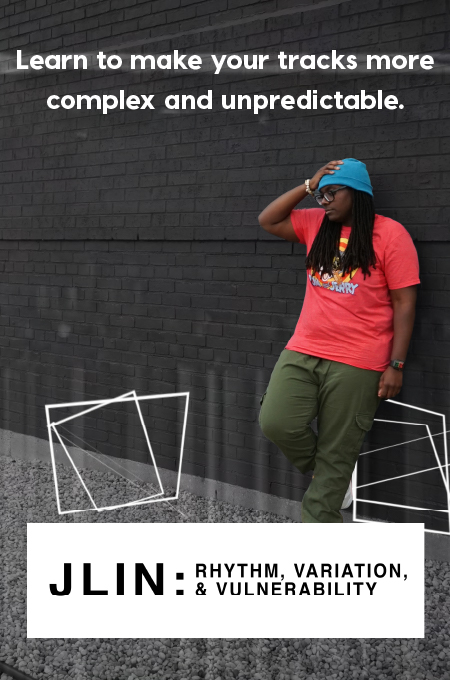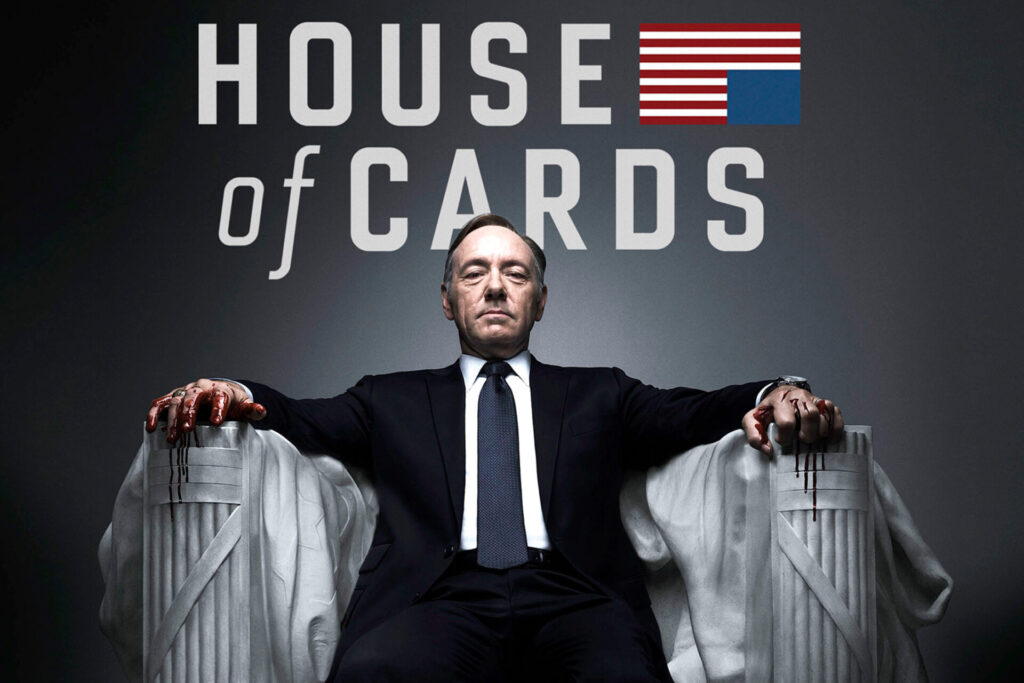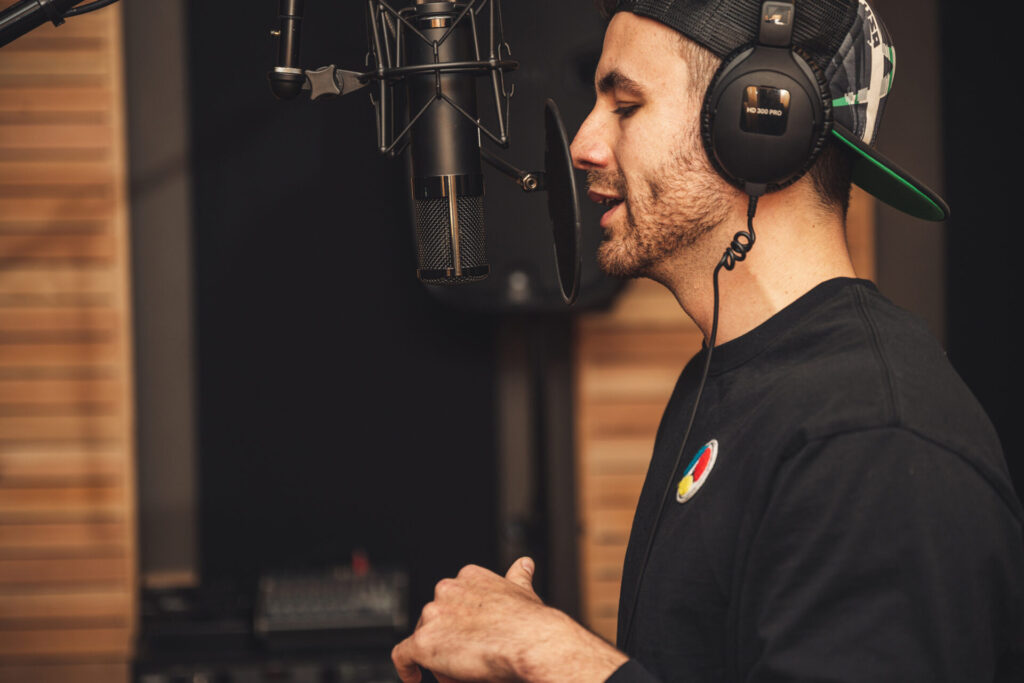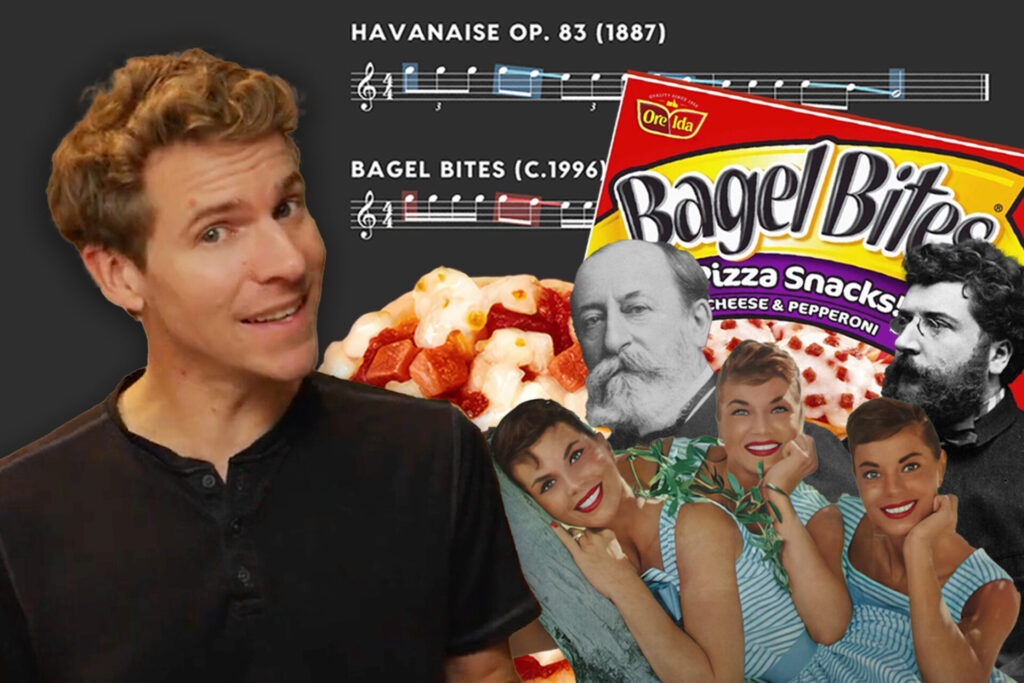This interview was conducted with Lina Farah, a songwriter/producer, and Soundfly community member, who has recently started promoting her forthcoming album, made in part with the help of a Soundfly Mentor.
I’ve known Lina Farah for a very long time. No, we aren’t friends, and no, we’ve never met IRL. But Lina was one of the first majorly active artists to engage in my free course, Touring on a Shoestring, back over five years ago, and we’ve been in touch ever since.
We’ve been in touch in part because she keeps coming back to Soundfly for more mentored sessions and courses — more community networking and reciprocal feedback — but also because her music just gets better and better with every release; and we here simply can’t get enough of it.
Lina is an Egyptian-German singer, songwriter, and producer, whose newest artistic project, Naheli, combines powerful visuals with epic, sprawling electronic pop music, to explore her heritage in ways that are for her deeper than she’s ever gone, and yet totally approachable for the casual listener. And that universality is nowhere more apparent than in her brand new single, “Common Ground.”
Take a listen:
I was super excited to chat with Farah about this hot new track, the album that it will eventually live inside, and all of the many things that make her music absolutely breathtaking; and difficult to forget. Enjoy!
Q: You recently released your new single, “Common Ground” as part of a double album coming out later this year called Chemistry and Reevaluation. Congrats! It’s a stunning track which at times makes me both want to dance ferociously as well as sit down and reflect quietly. But this is part of your new project Naheli, what has changed from your old project Kassiopeia?
A: Thank you! We started Kassiopeia as a progressive rock band over ten years ago. We wrote songs and rehearsed with the instruments we played ourselves, but after some structural changes, only my drummer and I stayed part of Kassiopeia. We started rearranging the songs for drums and piano and writing new ones with this new set-up.
While the band dynamic as a duo was incredibly easy and beautiful, I had a hard time relying on the piano throughout an entire set. When my drummer went to study abroad, I realized that playing concerts with only the piano was just not the way I intended to present our songs. This was when I started to study production and learn to use Ableton Live as a performance tool.
And doing that kind of accidentally opened up immense songwriting possibilities. With all those changes throughout the years, we decided to change the name of the project.
One of the things I love about “Common Ground” is that it feels like we’re on this epic, magical journey. Part of that is because the song goes through like 5 totally different sections all strung together, the bridge feels almost like a completely different song at first, and yet it flows so organically back into the pre-chorus with excitement and anticipation. There are even lyrical mentions of “narratives” and “stories” we can’t control. What, for you, is this song truly seeking to communicate to your listeners?
Thank you, the way you describe the song makes me very happy. Through my family, who mainly lives in Egypt, I grew up with a lot of passion for art. My grandfather was an architect who loved painting and writing, so his old apartment was full of paintings he or my cousin drew. With the song’s journey, I intend to explore the artful world, painful past decades and cultural diversity of the MENA region.
The Beirut explosion in 2020 was a big reminder that there is a massive discrepancy in the public view of this region. I have always wanted to visit Beirut as I grew up with stories about its artful streets, music, and thrilling nightlife. But as a Millennial, who grew up in Germany, my Western-ish bubble was more used to this sort of stuff happening faraway.
I hope that the story of the song celebrates the MENA culture and at the same time invites the listener (including myself) to take closer looks at the stories from regions we only know from breaking news.
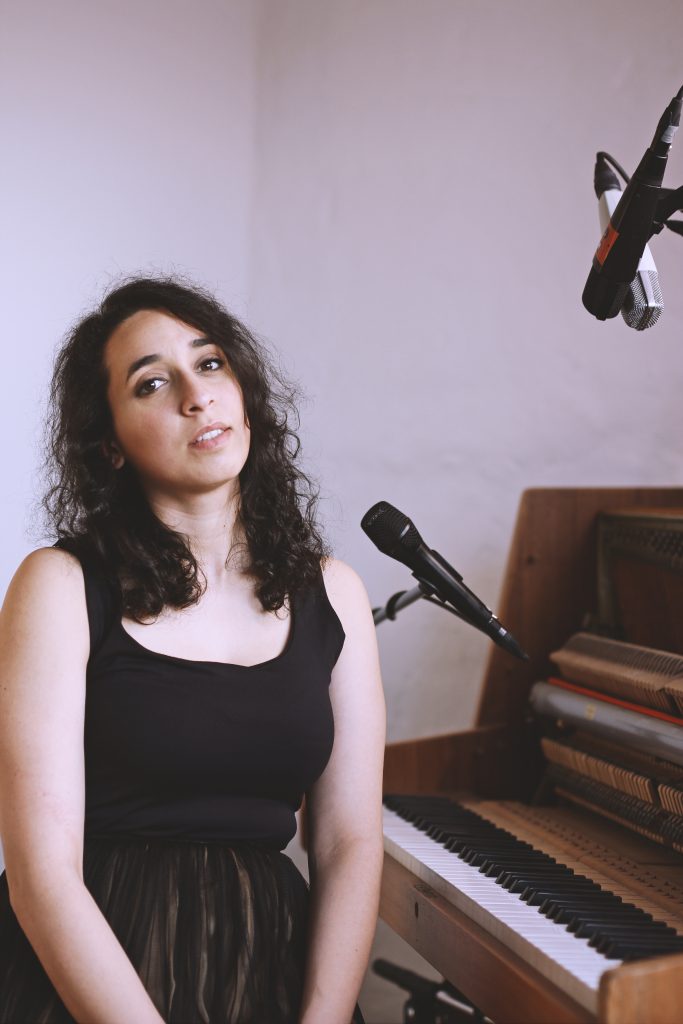
And lyrically, or musically, how do the themes in “Common Ground” get played out among the rest of the songs on the album?
With our double album, we want to present songs about feelings (Chemistry) and songs about thoughts (Reevaluation). “Common Ground” is going to be on the Reevaluation side. On this side, I am lyrically exploring perspectives, and musically as a band, we also want to be more experimental on this side (we started as a prog-rock band, after all).
To me lyrically, “Common Ground” is one of the rarer moments where I am not pondering about different perspectives and inviting everyone to ponder with me. With this song, I’m trying to create a very specific experience and re-humanize a world that was part of my upbringing.
“I try not to let anyone feel excluded when they listen to my songs. I want to create a space where people can think about the world while feeling cozy and comfortable.”
You mentioned to me that this album addresses your heritage in a way that you haven’t before in your career. Why is it important now for you to reexamine these aspects of your identity and put it on display?
What I’ve always loved about music is that it seems to be one of the rare things that make random people, who would usually not know each other, enjoy their time together.
I try not to let anyone feel excluded when they listen to my songs. I want to create a space where people can think about the world while feeling cozy and comfortable.
As I want to explore different perspectives and create a universal cozy space, it does not feel right to box myself in to a set definition; as in “the Egyptian musician” or “that girl who does prog rock.”
And I feel like one of the strongest pushes was the way BLM was communicated in Germany last year in response to the Beirut explosion. I suddenly felt like everyone was telling me how I should feel, what I should be mad about, what I should stand for. People were calling me PoC, which no one ever called me before (in Germany, I usually identified myself as an immigrant). I felt like my personal story was decided and shaped from the outside.
That was when I felt a huge split between what I was feeling and how the world reacted. Social media can be so loud, so that sometimes the loudest opinions seem to become the universal ones, and I wanted to push back on that. That is probably when I felt that I needed to tell my own story.
What is your songwriting or production process like exactly? What elements do you start with and how do you build your tracks?
It can be very different from song to song. But what happens a lot is that I have a melody in my head, and soon after that, a lyrical line that keeps coming back to me in connection to that melody.
The longer I write, the more I believe that the songs are already there, and I just need to kinda be open and believe they will come when I give them space; and urgency. Sometimes a deadline can be surprisingly helpful to develop the right idea, but it is uncomfortable to rely on that.
Usually, I am very quick with melodies. They come by themselves, or when someone else is playing (which is when the melodies come that I usually would not come up with by myself, that’s why co-writes are great). The hard part for me are the lyrics. That is when I start to overthink and even spend weeks thinking about one line.
You worked heavily on the album while undertaking back-to-back-to-back Soundfly mentorship sessions with Mahea Lee. How did her support and guidance help you throughout the process?
I honestly have no idea how I would have ever finished those songs without Mahea. I started the sessions as I knew I needed help with my lyrics — I am not a native English speaker. I wanted to make sure everything is on point, and that everything makes sense. And other than that, it is always great to get feedback and see whether the idea I am trying to convey is understandable or too convoluted.
From my previous experience, I also knew that Mahea, and other Soundlfy mentors, really look at the obstacles and help with brainstorming ideas that are helpful for the specific issues you’re dealing with; and not generic ones.
When you started the mentorship sessions, what did you look to get out of them?
As I tend to overthink, I was hoping that the sessions would help me write faster and be more confident with making decisions and coming up with ideas.
And somehow they did, but at the same time, the sessions also showed me the beauty and the meaning of overthinking when it comes to lyrics. There were moments where Mahea and I ended up discussing whether and why the word can, could, should, or might fit the purpose of a song better in a specific line.
Mahea has a beautiful way of not only making me see what I am capable of but also helping me understand why I am doing the things I am (unintentionally) doing and how I can use my strengths more deliberately. What I love about her style is that she always has an answer to why a specific song works.
+ Learn more about Soundfly’s goal-oriented custom mentorship program here, and fill out a quick form if you’re interested to learn more or get paired with a mentor!
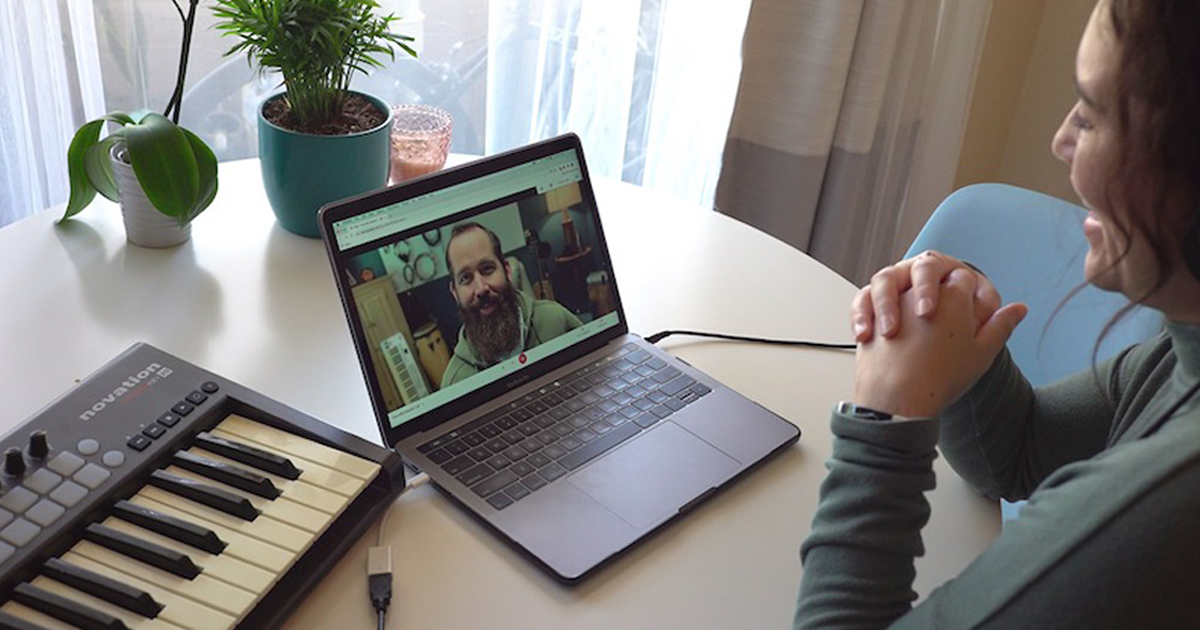
How has the pandemic been for you in terms of working on music?
It calmed me down in a good way. I can be very outgoing, but these past months have showed me how much of an introvert I turned out to be. I truly flourished while staying at home. I usually struggle with being more creative in the evening, but at the same time I love seeing my friends (which usually happens in the evening). Yet, it was freeing to just use this time for being creative, as spontaneously as I wanted to.
“I was trying to make the visuals look clean, vivid, and inviting, but at the same time, I was sitting in my pyjamas for weeks while posting pics of myself in the desert.”
Your visual style (as seen mostly on Instagram) is quite striking and powerful, and most of all, unified. Can you talk about what connections your photography and visuals have to the music?
Thank you so much, it is good to hear that. Honestly, I have mixed feelings towards social media communications right now. We took those pictures when we shot “Waves” in December 2019, and when we released it in March 2020, the world was a different place. I was trying to make the visuals look clean, vivid, and inviting, but at the same time, I was sitting in my pyjamas for weeks while posting pics of myself in the desert.
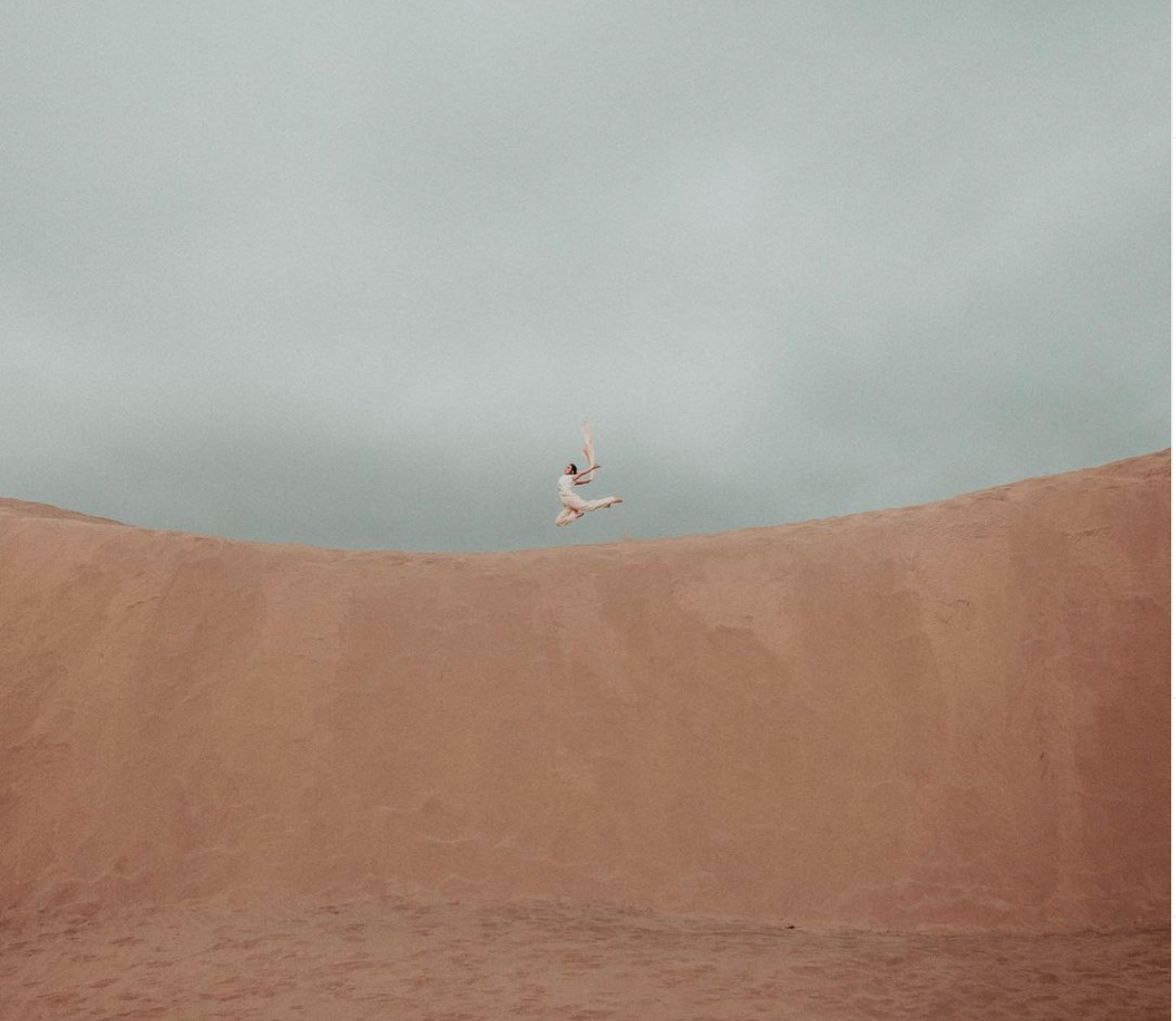
My first ever Soundfly session was to get help on my branding. And the session was incredible (or I would not still be stuck on Soundfly!). But even though it made me understand so much of what I wanted to do, implementing this and really getting myself out there is a totally different story and still a challenge for me personally.
So I think I need to experiment more with image-making, and find out how I can communicate online and still feel true to my music in a way that is natural and easy.
What are your favorite moments of this double album and why do they stand out for you
The exploration of making upbeat, dancey pop music is one of the most beautiful experiences I had while working on this album. One of the wishes I’ve had in recent years was to make music that is not just moody, but to try to implement shinier moments. So this album is more uplifting, and there will be three more upbeat-poppy songs (like “Vanilla” for example) to come!
What’s next for your musical career?
I really need to learn to actually celebrate a release. I swear to do it every time and end up not doing it, so I hope anyone reading this will hold me accountable for this. Also, I can’t wait to go back into co-writes and rediscover all the musical possibilities outside of the album project.
Ready for a custom session of your own?
Soundfly’s community of mentors can help you set the right goals, pave the right path toward success, and stick to schedules and routines that you develop together, so you improve every step of the way. Tell us what you’re working on, and we’ll find the right mentor for you!
